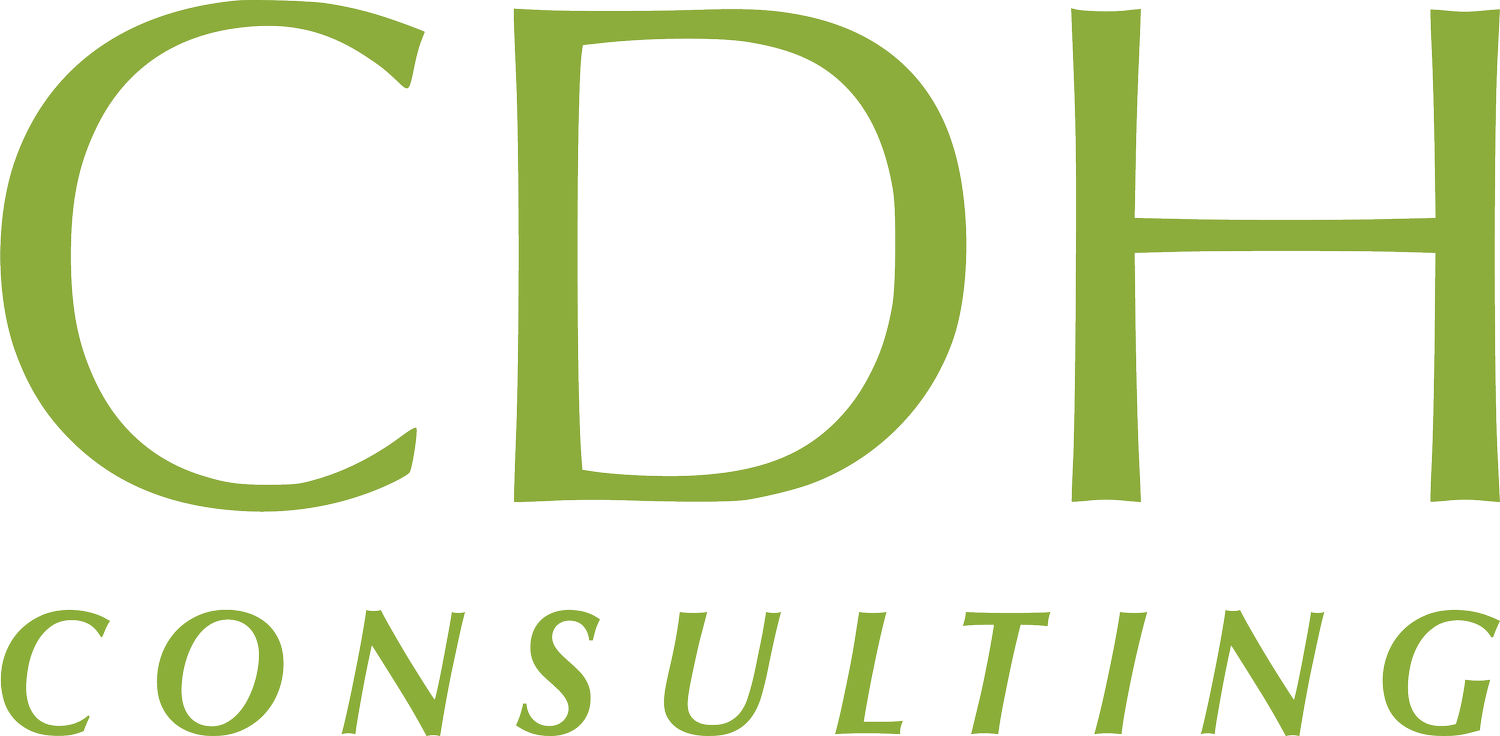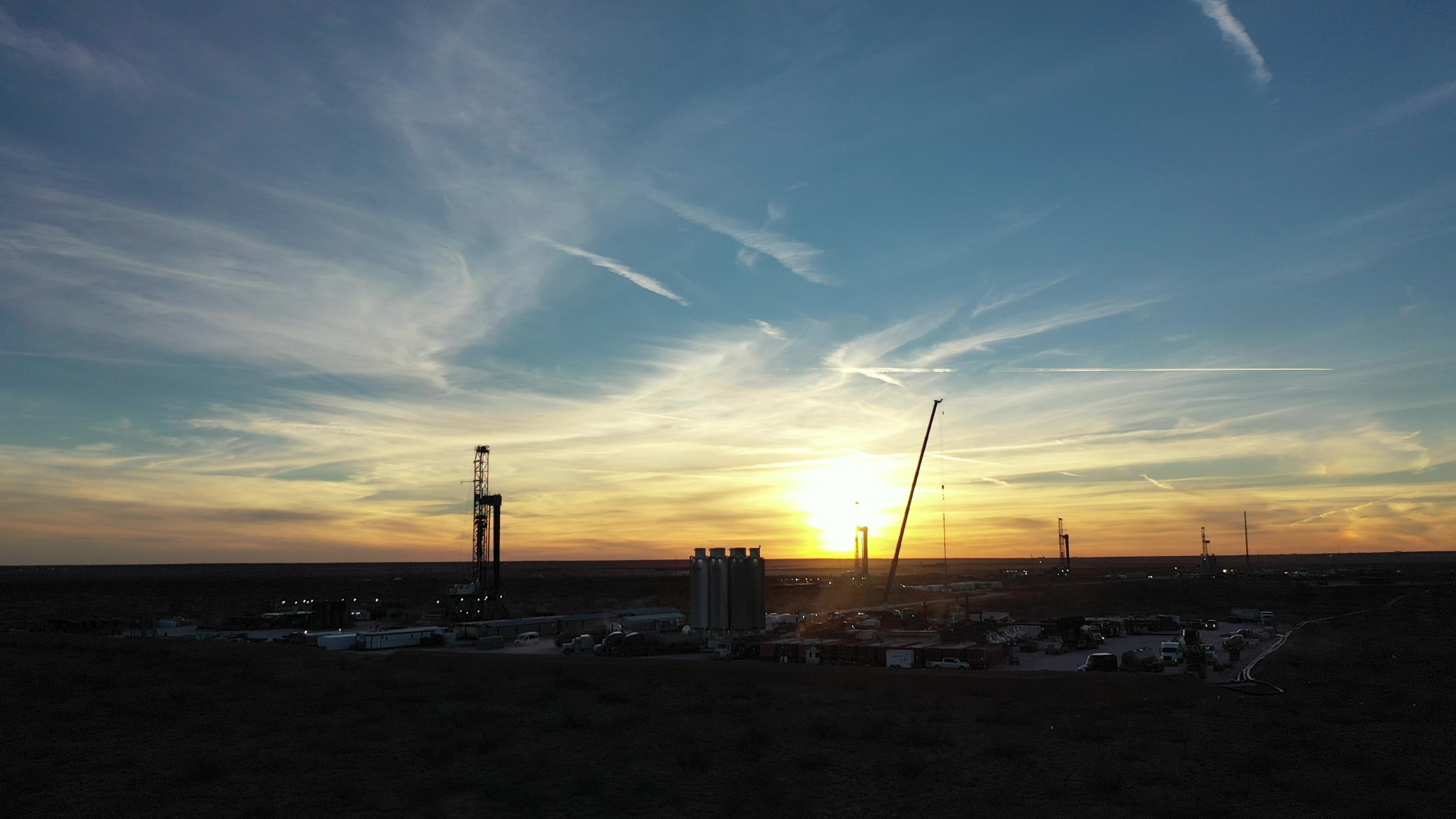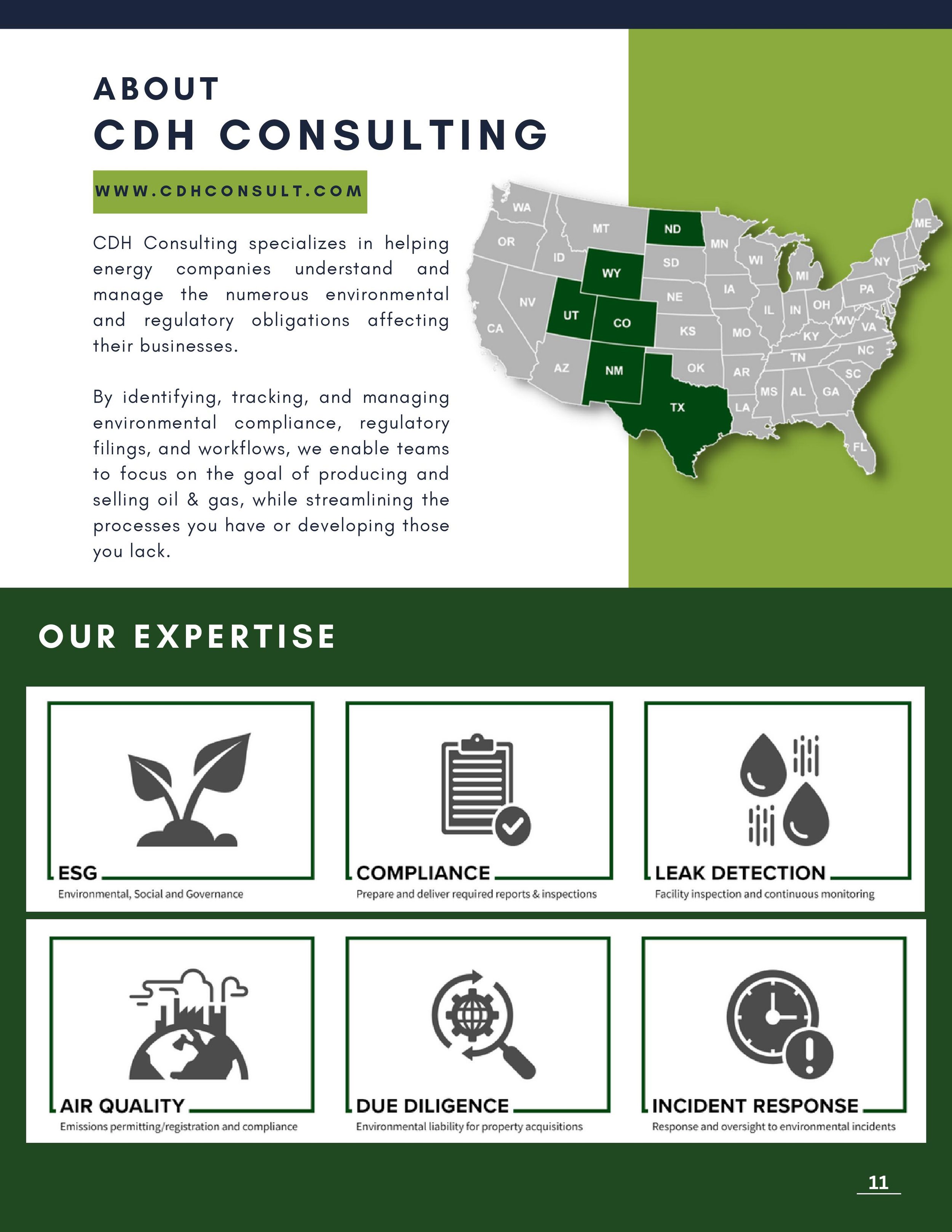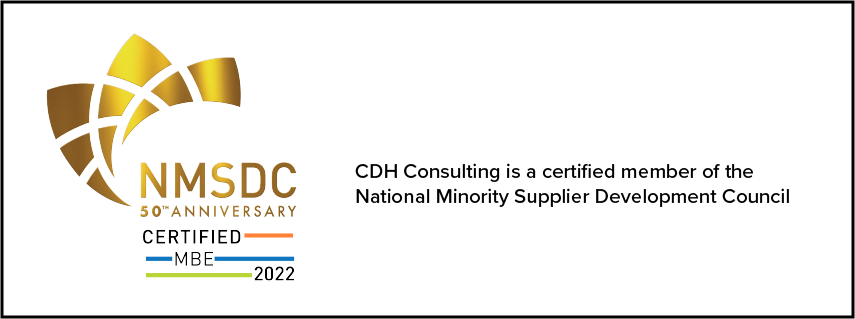UPDATES
May 2024 CDH Newsletter
Our May 2024 newsletter covers what you need to know to stay up to date with GHG, BLM Waste Prevention, OOOOb/c, Waste Emission Charge, Midstream Rules, SARA TRI, and much more.
October 2023 CDH Newsletter
Our October newsletter covers what you need to know to stay up to date with the COGCC, the Inflation Reduction Act, New Mexico Ozone Precursor Rule, OOOOb & OOOOc, WOTUS, and much more.
April 2023 CDH Newsletter
Our April newsletter covers what you need to know to stay up to date with GHG reporting, WOTUS, pneumatic controllers, SPCC planning, and much more.
CDH Consulting Announces its Certification as a Minority-Owned Business!
CDH Consulting recently completed the certification process with the National Minority Supplier Development Council (NMSDC). Our status as a certified minority-owned business provides access to a larger base of corporations in need of environmental consulting services
CDH Consulting recently completed the certification process with the National Minority Supplier Development Council (NMSDC). Our status as a certified minority-owned business provides access to a larger base of corporations in need of environmental consulting services.
In addition, partnering with CDH Consulting enables clients to bolster their Diversity, Equity, and Inclusion (DEI) and Environmental, Social, and Governance (ESG) metrics in subcontractor tracking categories.
A nationally recognized council since 1972, NMSDC has implemented a rigorous certification process to ensure program integrity in the pursuit of mutually beneficial relationships.
The Inflation Reduction Act of 2022
The Inflation Reduction Act of 2022 (IRA), which was signed into law by President Biden on August 16, 2022, creates a “Waste Emissions Charge” to be imposed on methane emissions that exceed an applicable waste emissions threshold from an owner or operator of an applicable facility that reports more than 25,000 metric tons of carbon dioxide equivalent (CO2e) of greenhouse gases per year.
The Inflation Reduction Act of 2022 (IRA), which was signed into law by President Biden on August 16, 2022, creates a “Waste Emissions Charge” to be imposed on methane emissions that exceed an applicable waste emissions threshold from an owner or operator of an applicable facility that reports more than 25,000 metric tons of carbon dioxide equivalent (CO2e) of greenhouse gases per year.
The charge will be based on the number of metric tons of methane emissions reported pursuant to subpart W of part 98 of title 40, Code of Federal Regulations, for the applicable facility that exceeds the applicable annual waste emissions threshold listed in Title VI, Subtitle A, Section 30113, subsection (f) of the Act during the previous reporting period in accordance with the following schedule:
$900 per metric ton of methane was reported for the calendar year 2024
$1,200 per metric ton of methane was reported for the calendar year 2025
$1,500 per metric ton of methane was reported for the calendar year 2026 and each year thereafter
For Petroleum and Natural Gas Production facilities, the annual waste emissions threshold is defined as 0.20 percent of the natural gas sent for sale from such facility. The threshold is 0.05 percent for nonproduction systems.
New Mexico Environment Department – Air Quality Bureau, Ozone Precursor Rules:
NMAC 20.2.50 – Oil and Gas Sector – Ozone Precursor Pollutants was enacted to reduce Ozone precursors, NOx, and VOC emissions, in Chaves, Dona Ana, Eddy, Lea, Rio Arriba, Sandoval, San Juan, and Valencia Counties.
NMAC 20.2.50 – Oil and Gas Sector – Ozone Precursor Pollutants was enacted to reduce Ozone precursors, NOx, and VOC emissions, in Chaves, Dona Ana, Eddy, Lea, Rio Arriba, Sandoval, San Juan, and Valencia Counties.
The rules are applicable to various equipment and processes, such as engines, compressors, control devices, equipment leaks, and fugitive emissions, well unloading, dehydrators, heaters, oil transfer, pigging, pneumatics, storage vessels, workovers, and pre-production operations. In part, the rules require extensive facility inspections, engine and pneumatic controller inventories, and recordkeeping.











































